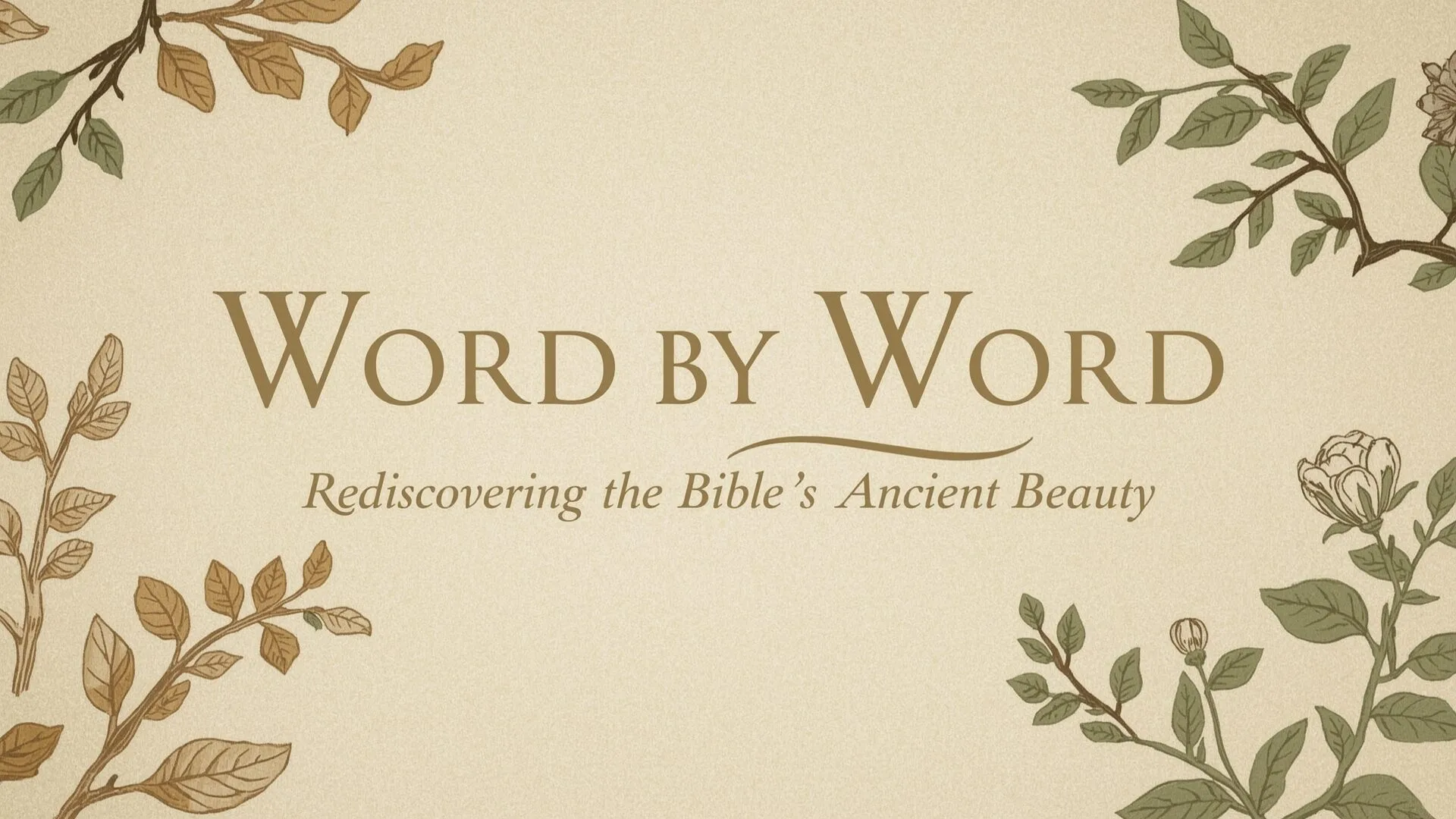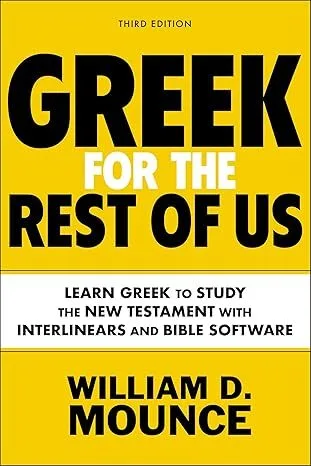Pronunciation Guide: DOG-mah (with emphasis on the first syllable)
Basic Definition

Key Information
δόγμα

Strong’s Entry
g1378
Strong’s G1378: δόγμα (dogma) refers to an official decree, formal opinion, or authoritative teaching that carries binding force. It denotes a fixed judgment, ordinance, or decision issued by someone in authority—whether governmental rulers or religious leaders—that establishes rules to be observed. In biblical contexts, it encompasses both civil decrees from human authorities and divine ordinances from God that require obedience.
Etymology and Morphology
- Part of speech: Noun (neuter)
- Root: From the verb δοκέω (dokeō, “to think, suppose, seem good”)
- Language origin: Classical Greek
- Primary usage: Legal, governmental, and religious contexts in narrative and teaching sections
δόγμα Morphology:
- δόγμα (nominative/accusative singular) – a decree, ordinance
- δόγματος (genitive singular) – of a decree
- δόγματι (dative singular) – with/by a decree
- δόγματα (nominative/accusative plural) – decrees, ordinances
- δογμάτων (genitive plural) – of decrees
- δόγμασι(ν) (dative plural) – with/by decrees
Origin & History
The term δόγμα has a rich history in classical Greek, where it originally referred to an opinion or philosophical tenet before evolving into a more formal concept. In Plato’s works, particularly in “The Republic,” δόγμα represented an authoritative opinion or judgment. Aristotle used it to denote philosophical principles or teachings that were accepted as true. By the Hellenistic period, the word had taken on political significance, referring specifically to official decrees issued by rulers or governing bodies.
In the Septuagint (LXX), δόγμα appears in the book of Daniel (2:13; 3:10, 12, 29; 6:8-15) primarily in reference to the authoritative edicts issued by King Nebuchadnezzar and King Darius. This usage established the word’s connection to royal authority and binding governmental decrees. The term later appears in the writings of Josephus and Philo, who maintained this sense of authoritative decree while also applying it to divine commandments, bridging the secular and religious applications we see in the New Testament.
Expanded Definitions & Translation Options
- A formal decree or edict issued by a governing authority that demands compliance
- An established ordinance or rule that regulates behavior
- An authoritative teaching or doctrine accepted as fundamental truth
- A binding decision that establishes precedent and requires obedience
- A divine command or requirement established by God’s authority
δόγμα Translation Options:
- Decree – Best captures the official, authoritative nature of the pronouncement, especially in governmental contexts like Luke 2:1
- Ordinance – Emphasizes the regulatory aspect, particularly appropriate when referring to religious requirements as in Ephesians 2:15
- Regulation – Highlights the practical, behavioral expectations established by the authority
- Decision – Underscores the finality and binding nature of the pronouncement
- Doctrine – While not used in biblical translations, this English derivative captures the theological extension of the term in later church history
Biblical Usage
The term δόγμα appears only five times in the New Testament, yet each occurrence reveals significant aspects of its meaning. Its first appearance in Luke 2:1 refers to Caesar Augustus’ imperial decree for a census that providentially positioned Mary and Joseph in Bethlehem for the Messiah’s birth, demonstrating how even pagan governmental edicts served God’s sovereign purposes. In Acts 16:4, δόγματα refers to the authoritative decisions reached by the Jerusalem Council regarding Gentile believers, showing how the term bridged secular and ecclesiastical authority structures.
Most profoundly, Paul uses δόγμα in his epistles to describe aspects of God’s law (Ephesians 2:15, Colossians 2:14) and to contrast divine authority with human regulations (Colossians 2:20). These uses reveal the tension between legitimate God-given authority and the human tendency to create unauthorized religious regulations. The Septuagint usage primarily appears in Daniel, where it consistently refers to royal decrees from Babylonian and Persian monarchs.
- “In those days a decree [δόγμα] went out from Caesar Augustus that all the world should be registered.” Luke 2:1
- “As they went on their way through the cities, they delivered to them for observance the decisions [δόγματα] that had been reached by the apostles and elders who were in Jerusalem.” Acts 16:4
- “By abolishing the law of commandments expressed in ordinances [δόγμασιν], that He might create in Himself one new man in place of the two, so making peace.” Ephesians 2:15
- “By canceling the record of debt that stood against us with its legal demands [δόγμασιν]. This He set aside, nailing it to the cross.” Colossians 2:14
- “If with the Messiah you died to the elemental spirits of the world, why, as if you were still alive in the world, do you submit to regulations [δογματίζεσθε, related verb form]?” Colossians 2:20
- “Then a decree [δόγμα] was issued by King Nebuchadnezzar that they should be slain.” Daniel 2:13 LXX
- “You, O king, have made a decree [δόγμα] that every man who hears the sound of the horn, pipe, lyre, trigon, harp, bagpipe, and every kind of music shall fall down and worship the golden image.” Daniel 3:10 LXX
Cultural Insights
In the first-century Roman world, a δόγμα from the emperor was absolute and unappealable. The census decree mentioned in Luke 2:1 demonstrates the extensive power of imperial Rome—a single word from Caesar could literally set entire populations in motion across the empire. This contextualizes the significance of Paul’s statement in Colossians 2:14 that Messiah has “canceled” the δόγματα that stood against us; he was using imagery his readers would immediately recognize as an assertion of Yeshua’s supreme authority that surpassed even that of Caesar.
The term carried additional significance in Jewish contexts. While the Hebrew Torah represented God’s loving instruction, many Jews of the Second Temple period experienced the interpretive traditions and applications of the Law (later collected in the Mishnah and Talmud) as burdensome δόγματα. These human-devised regulations often focused on external compliance rather than heart transformation. This provides essential background for understanding Paul’s contrast in Colossians between δόγματα from human sources versus the liberating truth of the Messiah. When Jesus criticized the “traditions of the elders” in Mark 7:1-13, He was addressing precisely this human tendency to elevate interpretive δόγματα to the level of divine authority.
Theological Significance
The New Testament usage of δόγμα reveals a profound tension between human authority structures and divine authority. In God’s sovereign providence, even pagan imperial δόγματα like the census decree of Augustus served Yahweh’s redemptive purposes by positioning Mary and Joseph in Bethlehem to fulfill Messianic prophecy. This demonstrates how God works His perfect will even through ungodly human authorities who issue decrees for entirely different purposes—a powerful reminder of His sovereignty over human history.
Paul’s use of δόγμα in Ephesians and Colossians reveals the heart of the gospel’s liberating power. The “δόγματα that stood against us” (Colossians 2:14) represents the legal demands of God’s Law that we could not fulfill—the debt record of our failure that was “nailed to the cross.” Yet simultaneously, Messiah abolished the “law of commandments expressed in δόγμασιν” (Ephesians 2:15) that separated Jews and Gentiles, creating one new humanity. The paradox reveals God’s wisdom: through the cross, Yeshua both fulfilled the legitimate demands of divine δόγματα on our behalf, while simultaneously freeing us from humanly-devised religious regulations that divide and burden rather than unite and liberate.
Personal Application
Understanding δόγμα challenges us to examine the sources of authority we recognize in our lives. Are we living primarily by human regulations and religious traditions, or by the life-giving commands of God properly understood through the lens of Messiah’s fulfillment? Paul warns against submitting to human δόγματα that have “an appearance of wisdom” but lack any power to transform the heart (Colossians 2:20-23). Instead, we are called to live by the Spirit who writes God’s law on our hearts.
When we grasp that Yeshua has canceled the δόγματα that stood against us, we experience true freedom—not freedom to ignore God’s righteous standards, but freedom from the burden of earning our standing before Him through religious regulations. This truth invites us to discern the difference between life-giving divine instruction and man-made religious obligations that merely create the illusion of spirituality. The question for our daily walk becomes: Am I motivated by external conformity to regulations, or by a transformed heart that loves what God loves?
Related Words
- ἐντολή (entolē, en-toh-LAY) – A command or precept given by someone in authority, particularly referring to direct divine commandments rather than general decrees. Unlike δόγμα which emphasizes formal authority, ἐντολή focuses on specific directives from a personal authority. See G1785
- νόμος (nomos, NOH-mos) – Law or principle, particularly the Torah or Mosaic Law. While δόγμα emphasizes the decree aspect of authority, νόμος represents the broader system of divine instruction and covenant relationship established by God. See G3551
- κρίμα (krima, KREE-mah) – A judgment, decision, or sentence pronounced by a judge. Related to δόγμα in its authoritative nature, but specifically refers to judicial verdicts rather than legislative decrees. See G2917
- δοκέω (dokeō, doh-KEH-oh) – The verbal root of δόγμα meaning “to think, suppose, or seem good.” This verb shows the conceptual origin of δόγμα as something that “seems right” to those in authority before becoming an official decree. See G1380
- παράδοσις (paradosis, pah-RAH-doh-sis) – Tradition or teaching handed down, especially referring to rabbinical interpretations of Scripture. Often contrasted with δόγμα in the New Testament, as human traditions versus divine decrees. See G3862
Did you Know?
- Did you know that our English word “dogma” comes directly from the Greek δόγμα, but has undergone significant semantic change? While biblical δόγμα referred primarily to official decrees with binding authority, modern English “dogma” typically refers to established doctrines or principles laid down by religious authority, often with negative connotations of rigidity or unquestioning acceptance. This shift mirrors the early church’s development of δόγμα from “imperial decree” to “established Christian doctrine” as seen in the creeds and councils of the 4th-5th centuries.
- Did you know that the Jerusalem Council’s δόγματα in Acts 15 and 16:4 represent the first authoritative rulings of the Messianic community, establishing a precedent for how Jewish and Gentile believers could maintain unity without requiring Gentiles to fully convert to Judaism? These careful decisions—addressing food offered to idols, sexual immorality, and consuming blood—specifically targeted practices that would have made table fellowship between Jewish and Gentile believers impossible in the first century, showing how biblical δόγματα were designed to build bridges rather than erect barriers.
- Did you know that when Paul speaks of the “handwriting of requirements” (χειρόγραφον τοῖς δόγμασιν) in Colossians 2:14, he uses specific language from ancient debt records? A χειρόγραφον was a certificate of debt written by hand and signed by the debtor as acknowledgment of the obligation. By connecting this to δόγμασιν (decrees/ordinances), Paul creates a powerful metaphor of our spiritual indebtedness to God’s righteous requirements—a debt record that Yeshua has completely canceled through His sacrificial death.
Remember This
When we truly grasp δόγμα (dogma), we understand that Messiah Yeshua has fulfilled every divine decree that stood against us, liberating us from both the burden of earning God’s favor through religious regulations and the condemnation that comes from failing to meet His perfect standard.
Note: While this entry strives for accuracy, readers engaged in critical research should verify citations and keyword occurrences in their Bible translation of choice. For Biblical citations, the F.O.G Bible project recommends Logos Bible software.
Strong's g1378
Add Comment
God's Word is too vast for a single perspective. We all have a story, and as believers we all carry the Holy Spirit who is the Revealer. With this in mind - I would love to read your comments.




